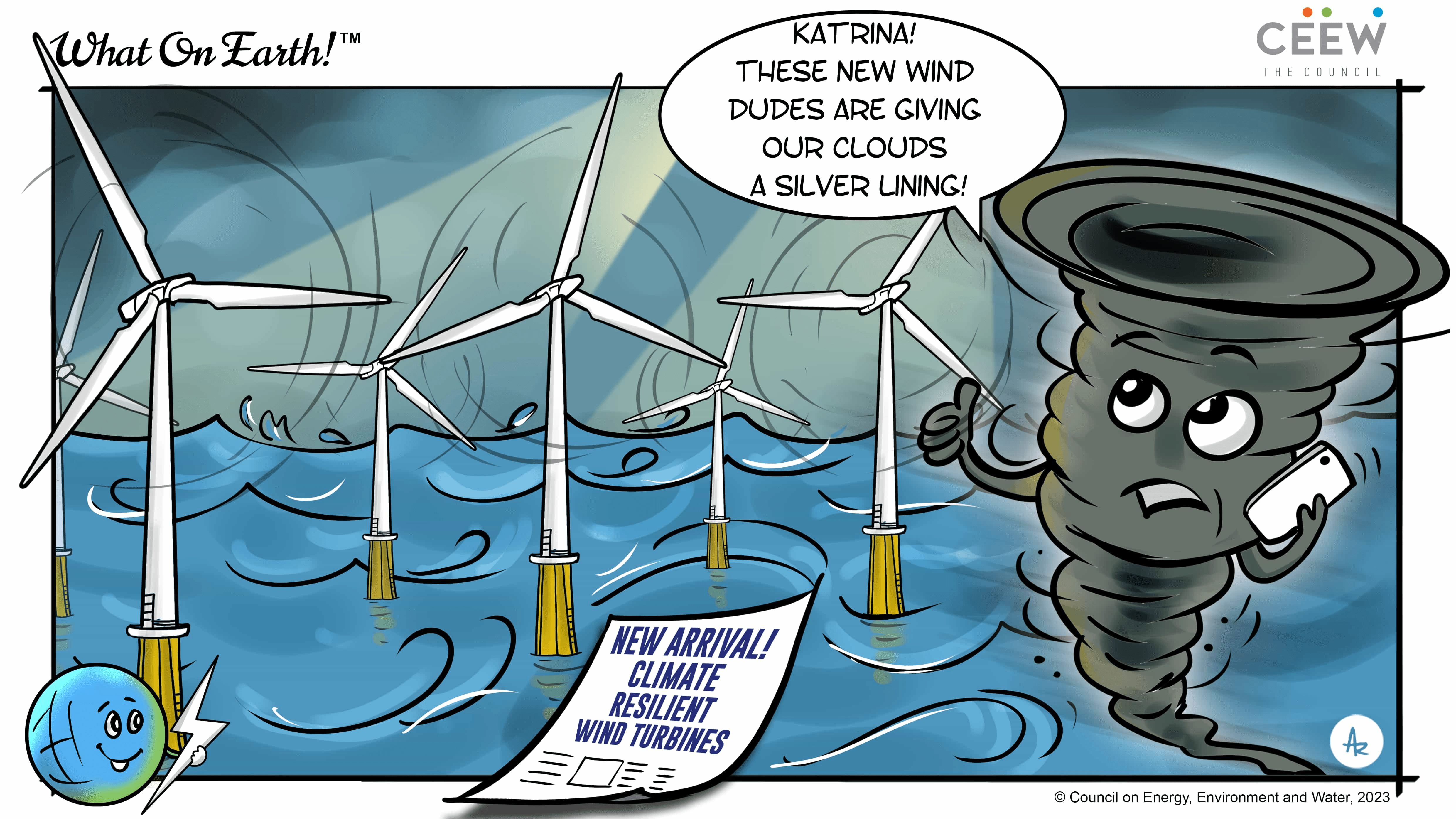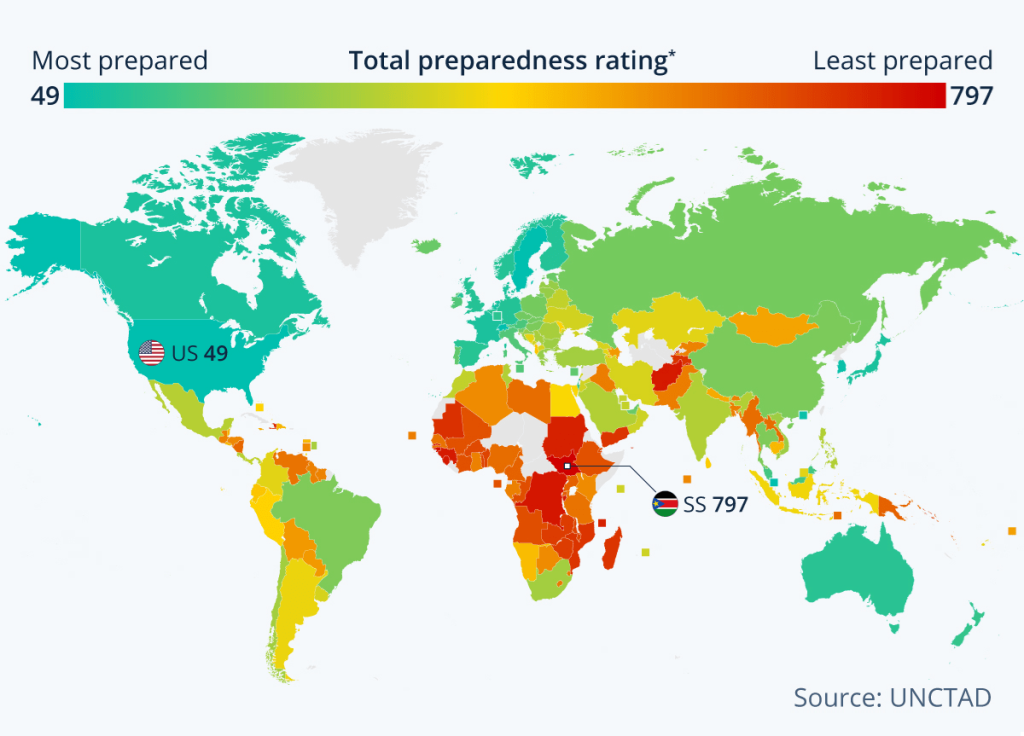
GovEVA is pleased to feature What On Earth!®, a cartoon series to mainstream sustainability, from the think tank Council on Energy, Environment and Water (CEEW). This collaboration should, however, not be viewed as an endorsement of either organisation’s policies or views.
Green Tech = Clean Tech = Sustainable Tech
Green tech is an umbrella term to describe innovate technology which is developed for the purpose of minimising environmental impact and maximising long-term sustainability. Green tech balances environmental, social and economic concerns.
Both hardware and software can qualify as green tech. Wind turbines to promote energy efficiency, aluminium which can be repeatedly recycled without losing quality, and AI enabled ESG analytics to track and improve sustainability performance, are all green tech.
The UNCTAD (United Nations Conference on Trade and Development) evaluted 166 countries on their level of preparedness to start using frontier green technologies, a measure of sustainability intent. India ranked 46th.
Governments play a critical role; selecting regulatory frameworks, setting national sustainability targets and providing incentives to encourage the adoption of green tech. Hence green tech should be integrated with social and policy initiatives to maximise adoption and impact.
The Indian government’s Production Linked Incentive scheme for manufacture of green tech, Green Term Ahead Market system to facilitate the sale of renewable energy, Rooftop Solar subsidy to encourage households to invest in sustainability, and similar policies, have enabled India to climb to 4th rank in wind, solar, and renewable energy installed capacity. Today, total non-fossil-fuel based power accounts for 42% of India’s installed electricity generation capacity, well on the way to achieving the national target of 50% renewable energy by 2030.


Artificial Intelligence (AI) plays a facilitatory role to boost the utility and benefits of ESG reporting technology:


Each month GovEVA’s ESG in Practice features a different topic, relevant to industry in their ESG journey.
● Growth of the Voluntary Carbon Market
● The Risk of Greenwashing
● Pathway to Net Zero
VOTE HERE for what YOU want to read about.
5 Million+ Customer Transactions Each Month

AI-Powered ESG Management
and Reporting, Enabled by Domain Experts

GovEVA is a leading cutting-edge digital ESG SaaS platform. Our vision is to empower large enterprises to digitize and streamline their sustainability journey, ensuring they meet their ESG goals efficiently and effectively.
A1, 8th Floor, Chander Mukhi Building,
Ramnath Goenka Marg, Nariman Point,
Mumbai – 400021, Maharashtra, India.

+91 98202 22089
Info@goveva.com
Copyright @2024 GovEVA. All rights reserved. ![]()
![]()